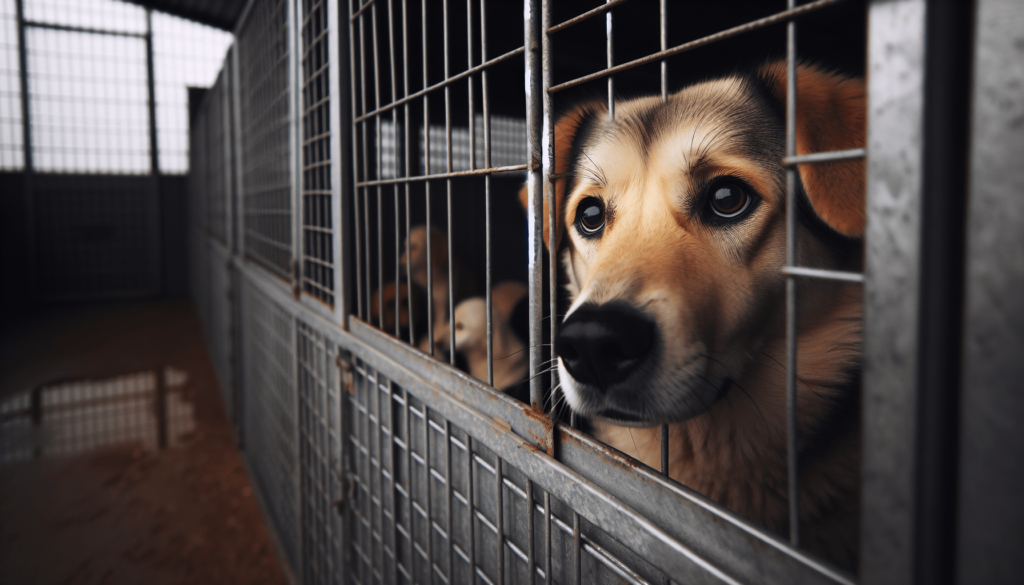Welcome to an eye-opening look at the impact of the pandemic on pet adoption. As COVID-19 swept across the globe, it led to a surge in pet adoptions as people sought companionship and comfort during these unprecedented times. This article will explore how the pandemic has influenced the adoption rates of animals, the challenges faced by shelters, and the long-term implications for both pets and their new owners. Get ready to uncover the heartwarming and sometimes challenging effects of this unexpected trend in the world of pet adoption. Did you know that pet adoptions soared during the pandemic? Let’s dive into how the pandemic affected pet adoption rates and the impact it had on both animals and humans.

Pet Adoption Statistics Before the Pandemic
Before the pandemic hit, pet adoption rates were already on the rise due to increasing awareness of animal welfare issues and the benefits of owning a pet. However, the pandemic accelerated this trend and led to a significant increase in pet adoptions.
Factors Driving Pet Adoptions
Factors such as loneliness, isolation, and the need for companionship during lockdowns played a crucial role in driving pet adoptions. Many people found solace in the unconditional love and companionship that pets provided during these challenging times.
Impact of the Pandemic on Shelter Animals
Shelter animals were one of the main beneficiaries of the surge in pet adoptions during the pandemic. Many shelters reported record numbers of adoptions as people sought out furry companions to keep them company during quarantine.
Reduction in Shelter overcrowding
The increase in pet adoptions during the pandemic helped reduce overcrowding in shelters, providing much-needed relief for these organizations. With fewer animals in shelters, it became easier for staff to care for and find homes for the remaining animals.
Improved Welfare of Shelter Animals
The pandemic also led to increased awareness of animal welfare issues, prompting many people to adopt rescue animals instead of purchasing pets from breeders. This shift in mindset helped improve the welfare of shelter animals and reduce the number of animals euthanized due to overcrowding.
Behavioral Changes in Pets Post-Adoption
Many new pet owners experienced behavioral changes in their pets post-adoption, likely due to the unique circumstances surrounding the pandemic. Understanding these changes can help pet owners better care for their furry friends.
Separation Anxiety
Due to the sudden increase in time spent at home with their new owners, pets may develop separation anxiety when their owners return to work or resume their normal routines. It’s essential for pet owners to gradually acclimate their pets to periods of alone time to prevent separation anxiety.
Socialization Challenges
Social distancing measures during the pandemic made it challenging for new pet owners to socialize their pets properly. Lack of exposure to people and other animals can lead to behavioral issues such as fearfulness or aggression. It’s crucial for pet owners to slowly introduce their pets to new environments and experiences to promote proper socialization.
Financial Considerations of Pet Adoption
Adopting a pet comes with financial responsibilities that potential pet owners should consider before bringing a new furry friend into their homes. Understanding the costs associated with pet ownership can help individuals make informed decisions.
Initial Adoption Fees
When adopting a pet from a shelter or rescue organization, there are typically adoption fees that cover the cost of vaccinations, spaying/neutering, and microchipping. These fees can vary depending on the organization and the age/breed of the animal.
Ongoing Expenses
In addition to the initial adoption fees, pet owners should budget for ongoing expenses such as food, grooming, veterinary care, and pet insurance. These costs can add up over time, so it’s important to consider whether you can afford to provide for a pet’s needs before adopting.

Benefits of Pet Ownership During the Pandemic
While pet ownership comes with its challenges, there are numerous benefits to having a furry companion, especially during times of uncertainty and stress like the pandemic. Pets provide emotional support, companionship, and a sense of purpose to their owners.
Emotional Support
Studies have shown that owning a pet can help reduce stress, anxiety, and feelings of loneliness. The unconditional love and companionship that pets provide can have a positive impact on mental health and overall well-being.
Companionship
During periods of isolation and social distancing, pets can provide much-needed companionship and a sense of connection to their owners. Simply having a furry friend to cuddle with or play with can help lift spirits and improve mood.
Sense of Purpose
Taking care of a pet requires time, effort, and responsibility, providing owners with a sense of purpose and fulfillment. Having a furry friend to care for can give structure to daily routines and encourage physical activity through walks and playtime.
Physical Health Benefits
In addition to the emotional benefits, owning a pet can also have positive effects on physical health. Walking a dog, for example, can help increase physical activity levels and improve cardiovascular health. The bond between pet and owner can encourage healthy habits and lead to a more active lifestyle.
Conclusion
The pandemic had a profound impact on pet adoption rates, leading to a surge in adoptions and providing much-needed relief for shelter animals. While pet ownership comes with its challenges, the benefits of having a furry companion during times of uncertainty and stress cannot be understated. Whether you’re a seasoned pet owner or considering adopting for the first time, it’s important to understand the financial, behavioral, and emotional aspects of pet ownership to provide the best possible care for your four-legged friend.

